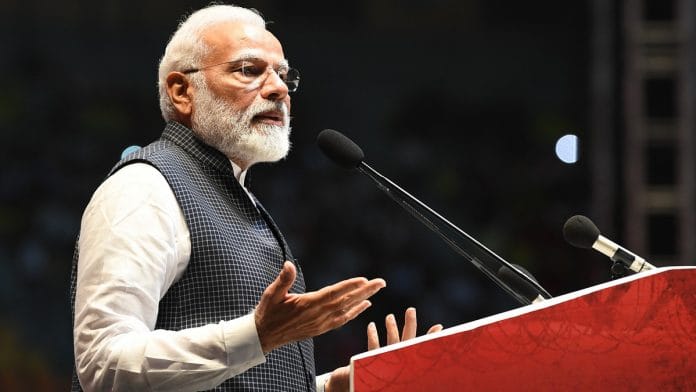Mumbai: Prime Minister Narendra Modi said availability of surplus liquidity in the international financial markets provides India an opportunity to access funds at lower borrowing costs.
India needs funds for its infrastructure and borrowing overseas makes lot of investment economically viable, Modi said in an interview to The Economic Times newspaper. He also reiterated his Bharatiya Janata Party’s pledge to spend 100 trillion rupees ($1.4 trillion) on building roads, railways and other infrastructure over the next five years.
The comments from Modi clarify the government’s intention to go ahead with a plan to sell the country’s first overseas sovereign bonds announced in the budget last month. The proposal drew criticism from a key group linked to the ruling party and former central bank governors. Since then, conflicting details about the issue and its size, and an abrupt transfer of a bureaucrat overseeing the sale has left the markets confused.
Here are other key points from Modi’s interview to the newspaper:
- To attract investors, the government aims to further liberalize foreign-direct investment policy, simplify labor laws, undertake reforms in power, banking, insurance and pension sectors as well as monetize state assets
- India will look to boost its rank in ease of doing business by taking steps including lowering taxes and simplifying procedures
- India and the U.S. have held talks in the last few months on various facets of trade and commerce and the government expects a positive outcome for both countries
- The transmission of monetary policy is important and also the cost and availability of credit. The government is working closely with the central bank and the banking system to remove hurdles in the flow of credit, especially to small and medium-sized companies
- The government’s decision to revoke the autonomy of Jammu and Kashmir is to ensure stability, market access and predictable laws to help flow of investments to the region






